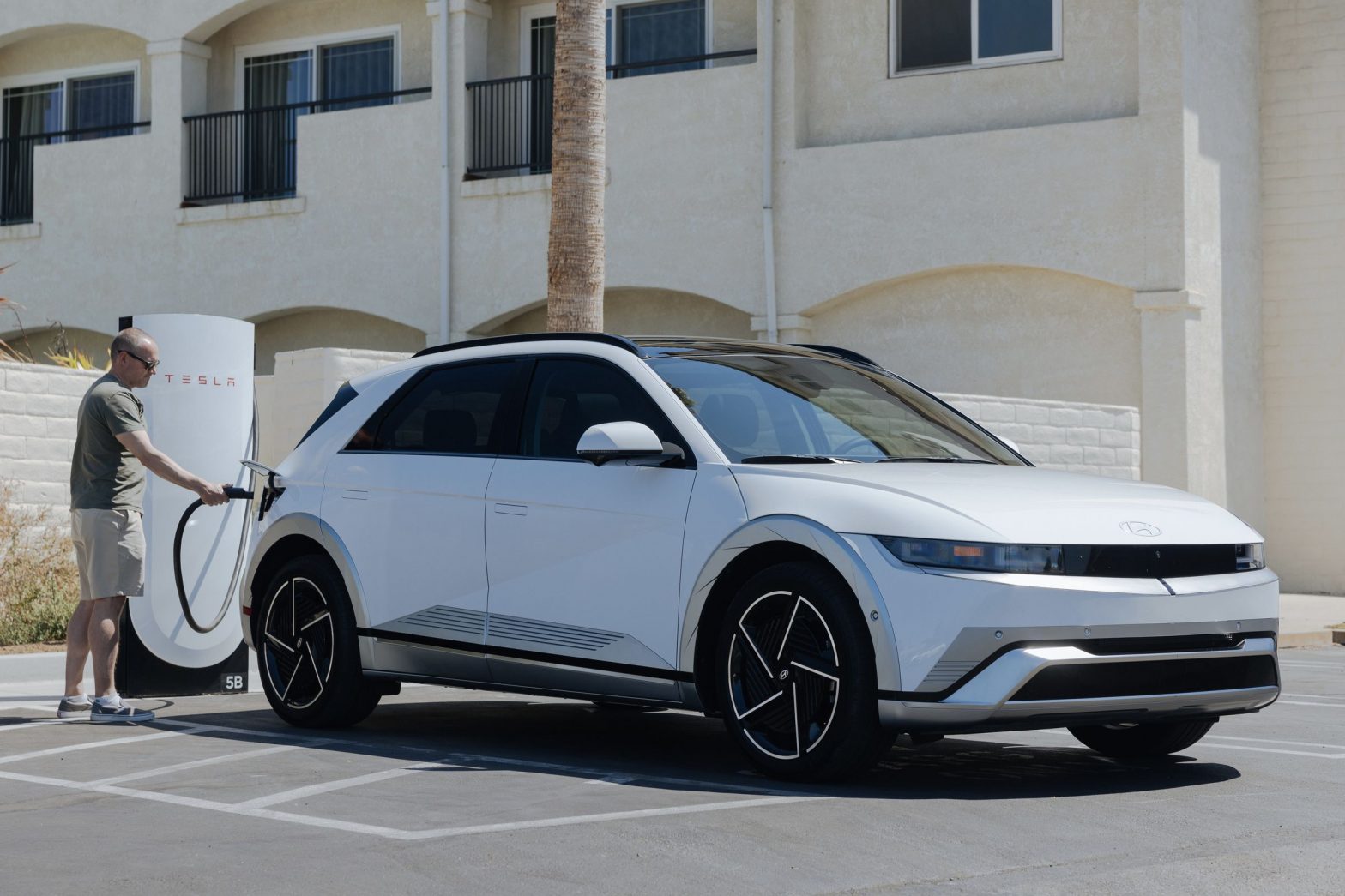/
The 2025 Ioniq has a bigger battery, and unlike almost all non-Tesla EVs, it won’t need a dongle to access the more than 17,000 Superchargers in the US.
Share this story
:format(webp)/cdn.vox-cdn.com/uploads/chorus_asset/file/25602464/Large_63277_2025IONIQ5Limited.jpg)
The 2025 Hyundai Ioniq 5 refresh revealed today looks like it will be one of the first non-Tesla vehicles to get a native Tesla-based charging port, now known as the North American Charging Standard, or NACS, built in from the factory. Last year, largely every automaker selling electric cars in the US announced it’s adopting the connector, but most haven’t added the port on their new cars yet, forcing customers to rely on CCS to NACS adapters that Tesla is taking a while to distribute.
We’ve seen prototypes of the new Rivian R2 with NACS, but that vehicle is not slated for release until 2026. While Ioniq 5 buyers won’t need an adapter at Tesla stations, the company will give owners a dongle that goes the other way in case they need to charge somewhere that only has Combined Charging System (CCS) plugs available.
In addition to the new port, the new 2025 Ioniq 5 lineup also has larger batteries compared to the current model:
Standard Range models: 58.0 to 63.0 kWh
Long Range models: 77.4 to 84 kWh
The beefier batteries mean the new Standard Range models are targeting 240-plus miles on a single charge, up from 220 miles on the current model, while the Long Range plus RWD combination sees its range estimate increase from the current 303 miles to a target of more than 310.
Hyundai is also tossing in a new rugged XRT package with an off-road appeal similar to Ford’s Mustang Mach-E Rally.
:format(webp)/cdn.vox-cdn.com/uploads/chorus_asset/file/25602474/Large_63182_2025IONIQ5XRT.jpg)
Hyundai is building this new version of the Ioniq 5 in the US at its new Georgia factory, and production will begin this fall. Hyundai expects the new model to qualify for a $3,750 federal tax credit for electric vehicles at the start of the sale and anticipates additional federal incentives to come. According to Hyundai, leases still qualify for the $7,500 federal credit, which is “fully” passed down to the consumer.
